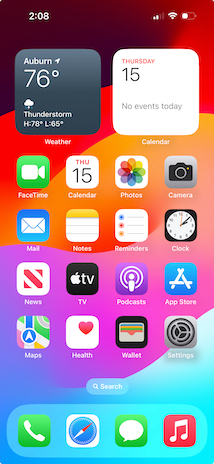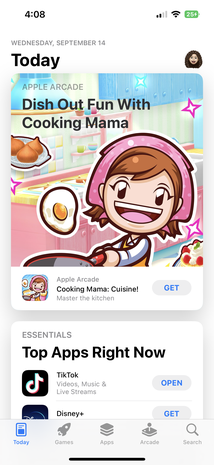Related Research Articles
A software development kit (SDK) is a collection of software development tools in one installable package. They facilitate the creation of applications by having a compiler, debugger and sometimes a software framework. They are normally specific to a hardware platform and operating system combination. To create applications with advanced functionalities such as advertisements, push notifications, etc; most application software developers use specific software development kits.
In computer security, a sandbox is a security mechanism for separating running programs, usually in an effort to mitigate system failures and/or software vulnerabilities from spreading. The sandbox metaphor derives from the concept of a child's sandbox—a play area where kids can build, destroy, and experiment without causing any real-world damage. It is often used to execute untested or untrusted programs or code, possibly from unverified or untrusted third parties, suppliers, users or websites, without risking harm to the host machine or operating system. A sandbox typically provides a tightly controlled set of resources for guest programs to run in, such as storage and memory scratch space. Network access, the ability to inspect the host system, or read from input devices are usually disallowed or heavily restricted.
Android is a mobile operating system based on a modified version of the Linux kernel and other open-source software, designed primarily for touchscreen mobile devices such as smartphones and tablets. Android is developed by a consortium of developers known as the Open Handset Alliance, though its most widely used version is primarily developed by Google. It was unveiled in November 2007, with the first commercial Android device, the HTC Dream, being launched in September 2008.

iOS is a mobile operating system developed by Apple exclusively for its smartphones. It was unveiled in January 2007 for the first-generation iPhone, launched in June 2007.

The App Store is an app marketplace developed and maintained by Apple, for mobile apps on its iOS and iPadOS operating systems. The store allows users to browse and download approved apps developed within Apple's iOS SDK. Apps can be downloaded on the iPhone, iPod Touch, or iPad, and some can be transferred to the Apple Watch smartwatch or 4th-generation or newer Apple TVs as extensions of iPhone apps.
An app store, also called an app marketplace or app catalog, is a type of digital distribution platform for computer software called applications, often in a mobile context. Apps provide a specific set of functions which, by definition, do not include the running of the computer itself. Complex software designed for use on a personal computer, for example, may have a related app designed for use on a mobile device. Today apps are normally designed to run on a specific operating system—such as the contemporary iOS, macOS, Windows, Linux or Android—but in the past mobile carriers had their own portals for apps and related media content.
A mobile application or app is a computer program or software application designed to run on a mobile device such as a phone, tablet, or watch. Mobile applications often stand in contrast to desktop applications which are designed to run on desktop computers, and web applications which run in mobile web browsers rather than directly on the mobile device.

Google Cloud Messaging (GCM) was a mobile notification service developed by Google that enables third-party application developers to send notification data or information from developer-run servers to applications that target the Google Android Operating System, as well as applications or extensions developed for the Google Chrome internet browser. It was available to developers free of charge. The GCM Service was first announced in June 2012 as a successor to Google's now-defunct Android Cloud to Device Messaging (C2DM) service, citing improvements to authentication and delivery, new API endpoints and messaging parameters, and the removal of limitations on API send-rates and message sizes. It has been superseded by Google's Firebase Cloud Messaging (FCM) on May 29, 2019.

AliOS is a Linux distribution developed by Alibaba Cloud, a subsidiary of Mainland Chinese company Alibaba Group. It is designed for smart cars and Internet of Things (IoT) devices, and it had been used as a mobile operating system.
Aptoide is an online marketplace for mobile applications which runs on the Android and iOS operating systems. In Aptoide, unlike the Android-default Play Store and iOS-default App Store, there is not a unique and centralized store; instead, each user manages their own store. The software package is published by Aptoide S.A., a for-profit company incorporated in 2011, and headquartered in Lisbon, Portugal.
In the context of mobile apps, deep linking consists of using a uniform resource identifier (URI) that links to a specific location within a mobile app rather than simply launching the app. Deferred deep linking allows users to deep link to content even if the app is not already installed. Depending on the mobile device platform, the URI required to trigger the app may be different.

F-Droid is an open-source app store and software repository for Android, serving a similar function to the Google Play store. The main repository, hosted by the project, contains only free and open source apps. Applications can be browsed, downloaded and installed from the F-Droid website or client app without the need to register an account. "Anti-features" such as advertising, user tracking, or dependence on non-free software are flagged in app descriptions.
Google Play Services is a proprietary software package produced by Google for installation on Android devices. It consists of background services and libraries for use by mobile apps running on the device. When it was introduced in 2012, it provided access to the Google+ APIs and OAuth 2.0. It expanded to cover a variety of Google services, allowing applications to communicate with the services through common means.

The popularisation of mobile games began as early as 1997 with the introduction of Snake preloaded on Nokia feature phones, demonstrating the practicality of games on these devices. Several mobile device manufacturers included preloaded games in the wake of Snake's success. In 1999, the introduction of the i-mode service in Japan allowed a wide variety of more advanced mobile games to be downloaded onto smartphones, though the service was largely limited to Japan. By the early 2000s, the technical specifications of Western handsets had also matured to the point where downloadable applications could be supported, but mainstream adoption continued to be hampered by market fragmentation between different devices, operating environments, and distributors.

Epic Games, Inc. v. Apple Inc. was a lawsuit brought by Epic Games against Apple in August 2020 in the United States District Court for the Northern District of California, related to Apple's practices in the iOS App Store. Epic Games specifically had challenged Apple's restrictions on apps from having other in-app purchasing methods outside of the one offered by the App Store. Epic Games's founder Tim Sweeney had previously challenged the 30% revenue cut that Apple takes on each purchase made in the App Store, and with their game Fortnite, wanted to either bypass Apple or have Apple take less of a cut. Epic implemented changes in Fortnite intentionally on August 13, 2020, to bypass the App Store payment system, prompting Apple to block the game from the App Store and leading to Epic filing its lawsuit. Apple filed a countersuit, asserting Epic purposely breached its terms of contract with Apple to goad it into action, and defended itself from Epic's suit.

Epic Games v. Google is a lawsuit brought by Epic Games against Google in August 2020 in the Northern District of California. Filed concurrently with Epic Games v. Apple, Epic had challenged Google's monopolistic practices on its Google Play Store on Android devices. A jury trial was held in November and December 2023, after which the jury found for Epic on all counts, ruling that Google violated anti-trust laws in maintaining the Play Store as the dominant storefront with Android, including making deals to ensure apps would be solely published through the Play Store and requiring the Play Store be installed on third-party devices.
The Coalition for App Fairness (CAF) is a coalition comprised by companies, who aim to reach a fairer deal for the inclusion of their apps into the Apple App Store or the Google Play Store. The organization's executive director is Meghan DiMuzio and its headquarters are located in Washington, D.C.
Umar Javeed, Sukarma Thapar, Aaqib Javeed vs. Google LLC and Ors. is a 2019 court case in which Google and Google India Private Limited were accused of abuse of dominance in the Android operating system in India. The Competition Commission of India found that Google abused its dominant position by requiring device manufacturers wishing to pre-install apps to adhere to a compatibility standard on Android.
Google Wallet is a digital wallet platform developed by Google. It is available for the Android, Wear OS, and Fitbit OS operating systems, and was announced on May 11, 2022, at the 2022 Google I/O keynote. It began rolling out on Android smartphones on July 18, 2022.
References
- 1 2 "Jan Krämer, Device Neutrality - The missing link for fair and transparent online competition?" (PDF). www.cerre.eu. Retrieved 2019-12-10.
- 1 2 "After Net Neutrality, Device Neutrality | HERMES Center for Transparency and Digital Human Rights". www.hermescenter.org. 4 December 2017. Retrieved 2018-03-28.
- ↑ "Net Neutrality Explained: What It Means (and Why It Matters)". Fortune. Retrieved 2018-03-28.
- ↑ "Disposizioni in materia di fornitura dei servizi della rete internet per la tutela della concorrenza e della libertà di accesso degli utenti" (in Italian). 2014-07-08. Retrieved 2019-03-13.
- ↑ Mastrolonardo, Raffaele. "Net neutrality could become law in Italy - unless internet users would rather opt out". ZDNet. Retrieved 2018-03-28.
- ↑ "ARCEP, Devices, the weak link in achieving an open internet" (PDF). www.arcep.fr. Retrieved 2019-12-10.
- ↑ "No, Italy isn't banning the iPhone". Boing Boing. 2017-06-24. Retrieved 2018-03-28.
- ↑ Epic's complaint for injunctive relief (PDF), retrieved 2020-08-14
- ↑ "Elizabeth Warren wants to break up Apple, too". 2019-03-09. Retrieved 2019-03-13.
- ↑ "An open letter to Google".
- ↑ "Free Fortnite FAQ".
- ↑ Epic's complaint for injunctive relief (PDF), retrieved 2020-08-14
- ↑ South Korea to make pre-installed Google apps removable for Android phones , retrieved 2021-08-19
- ↑ Russia Fines Google $6.8M for Android App Bundling , retrieved 2020-08-19
- ↑ "Neutrality must for platforms, app stores and devices, says outgoing TRAI chief", www.thehindu.com, retrieved 2020-08-19